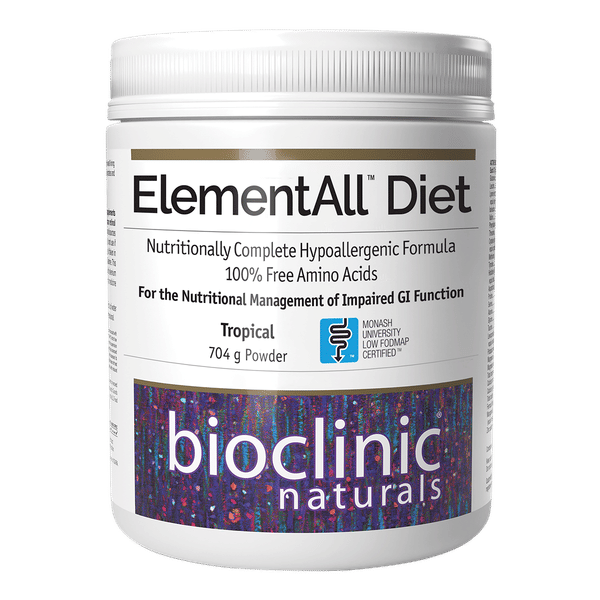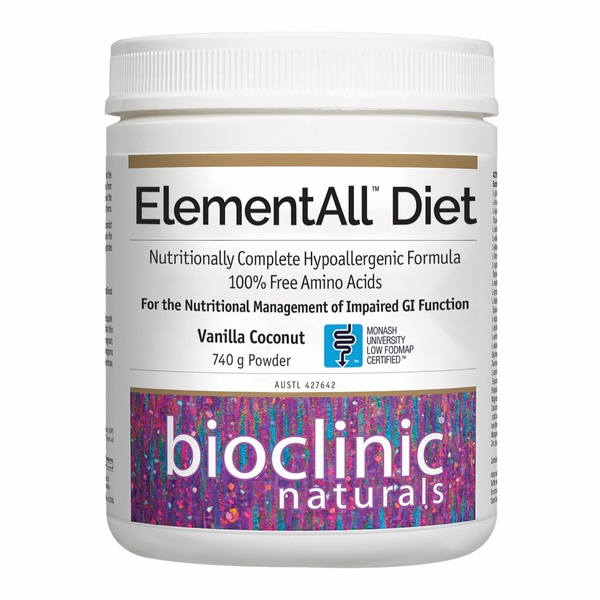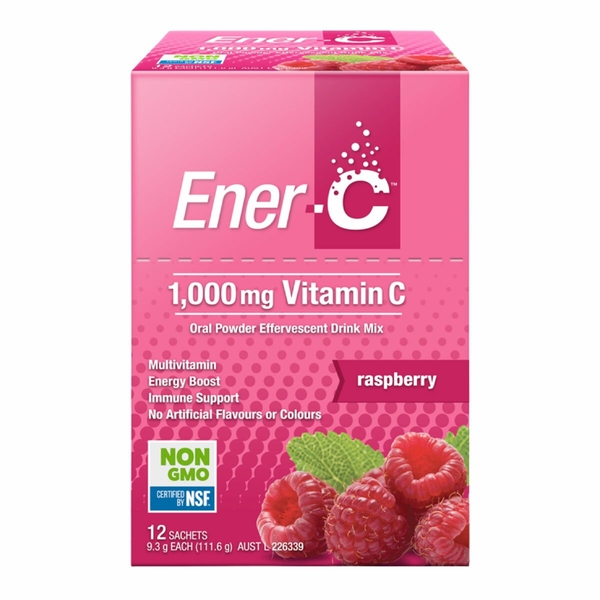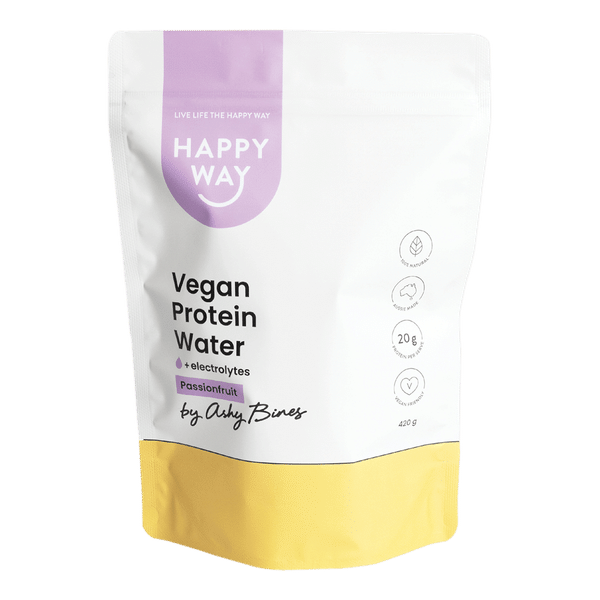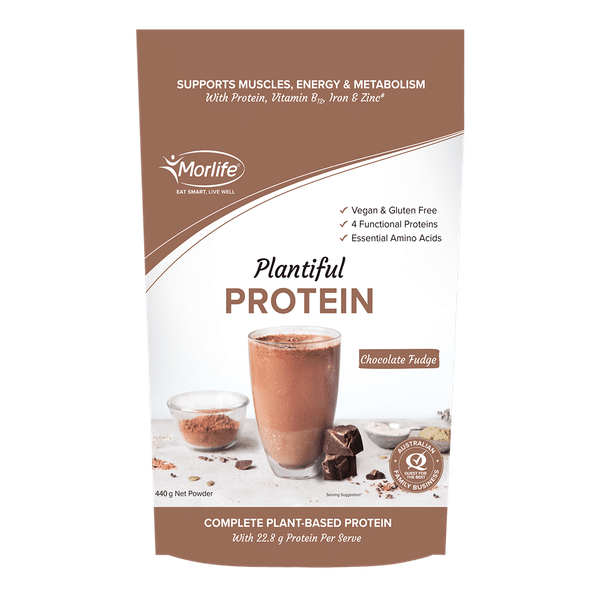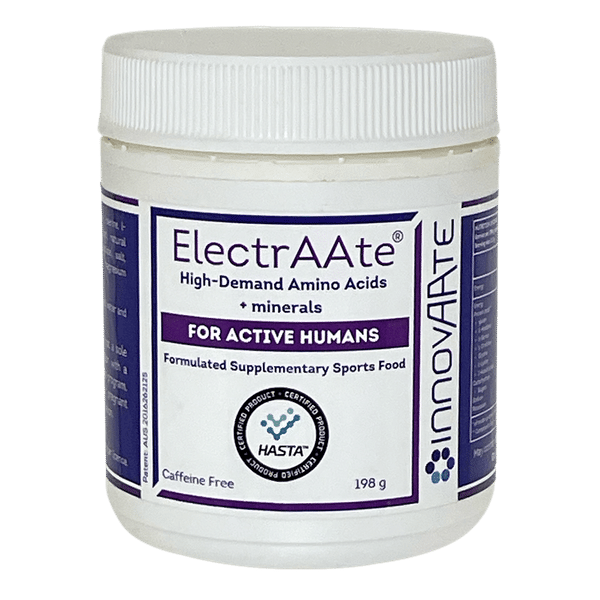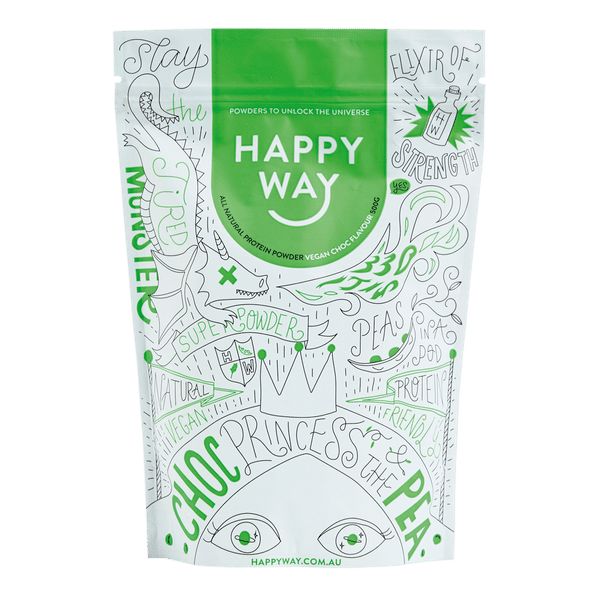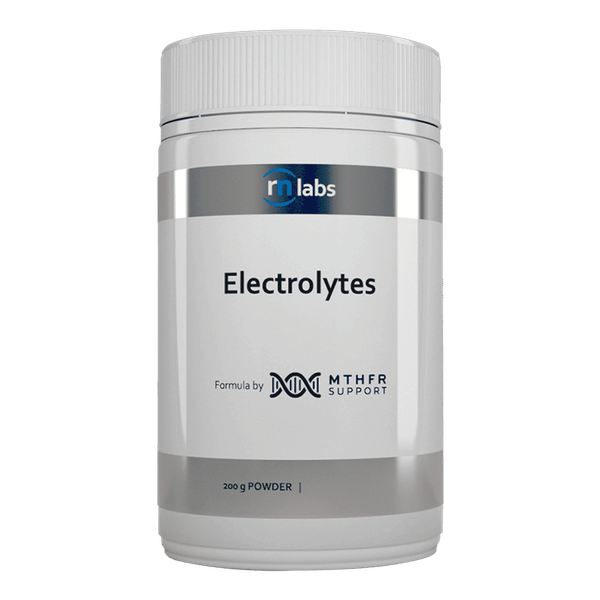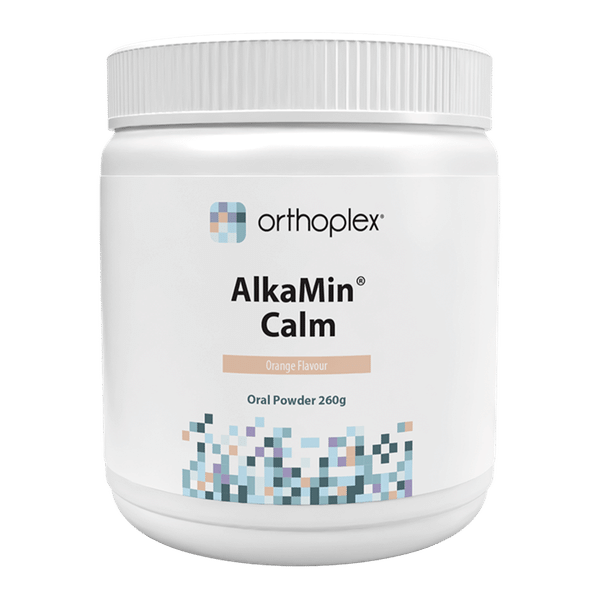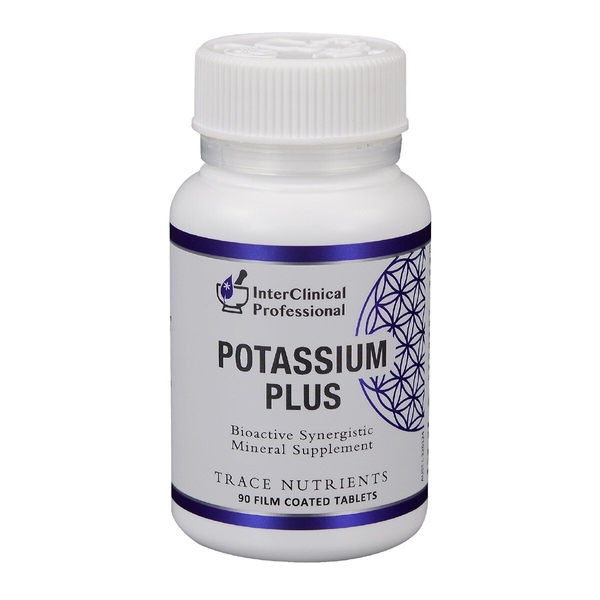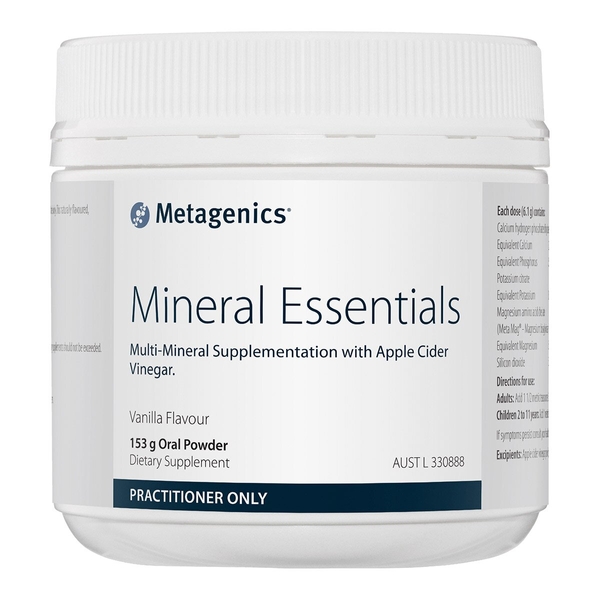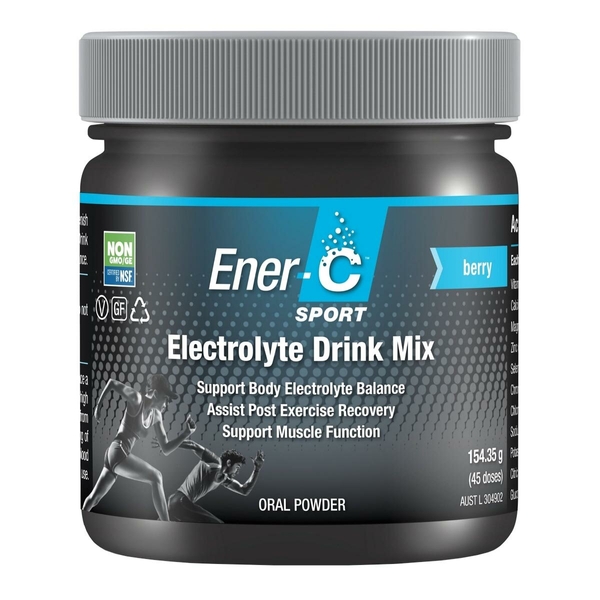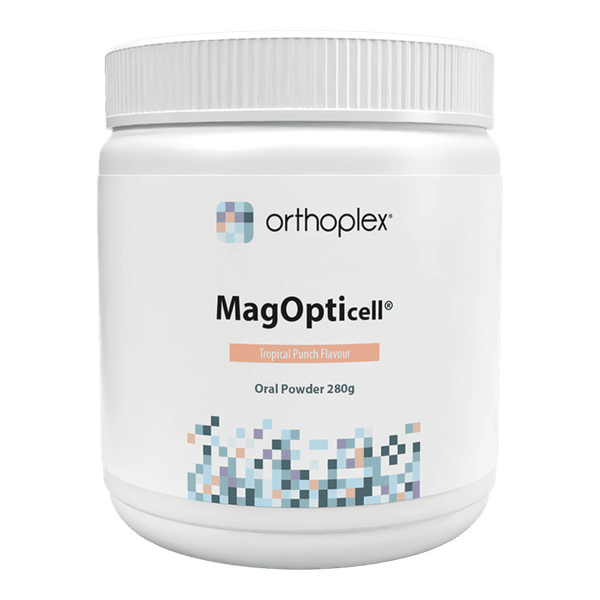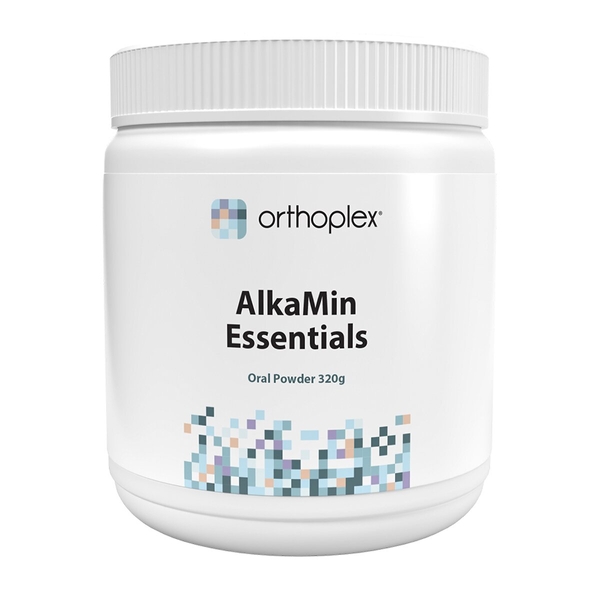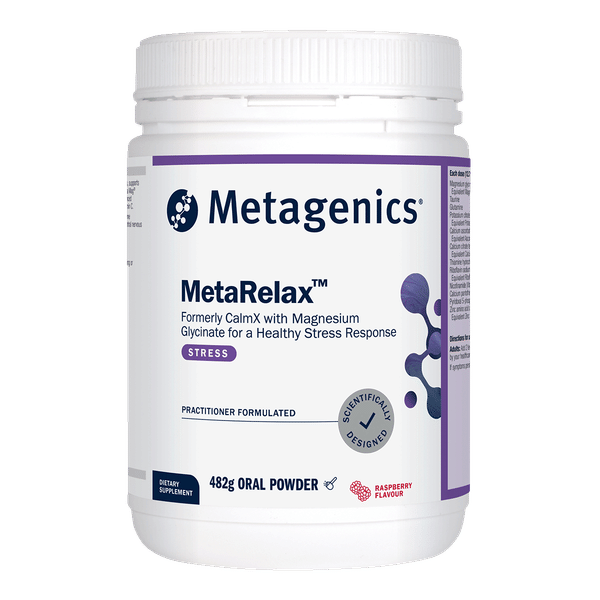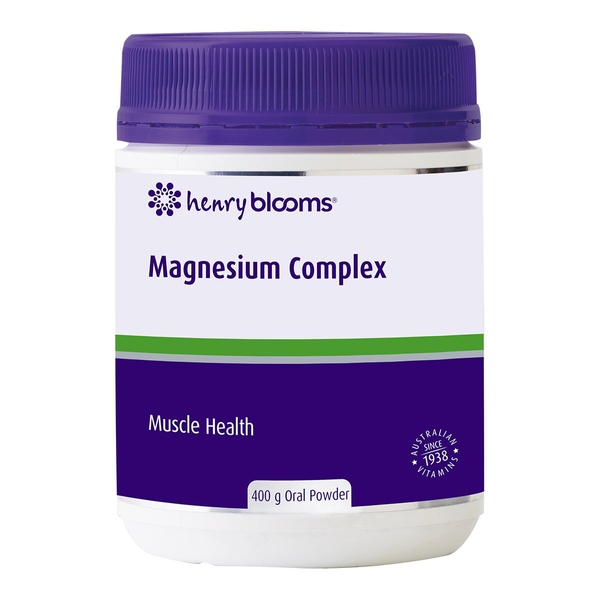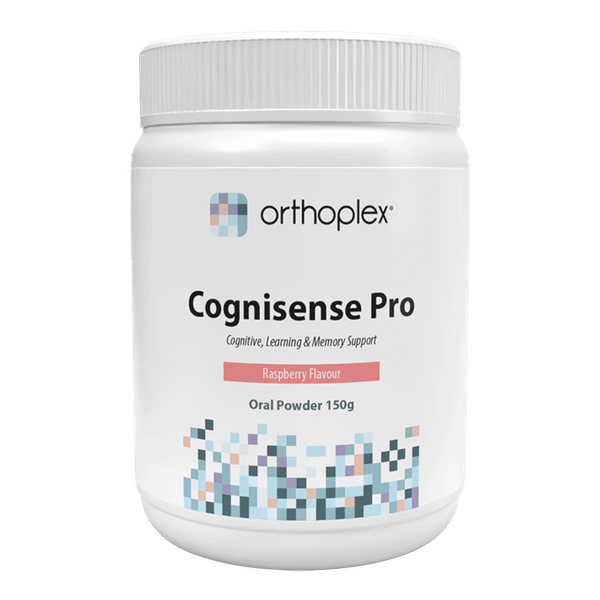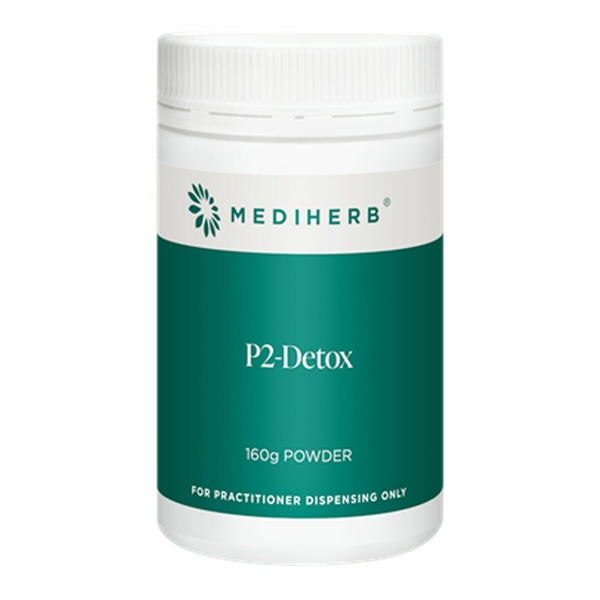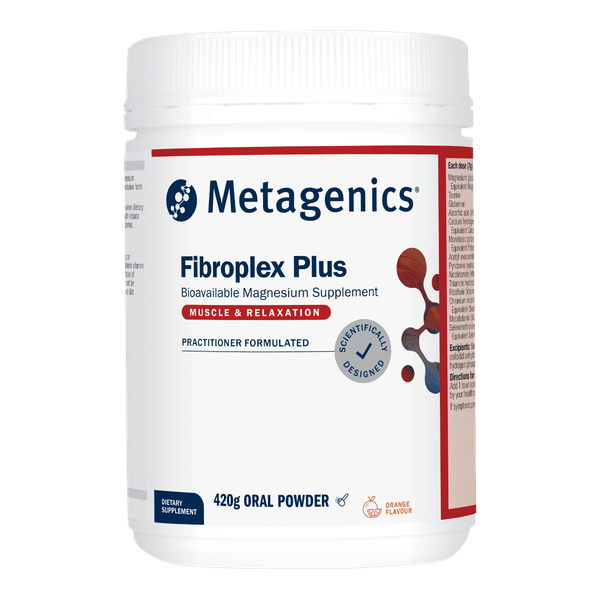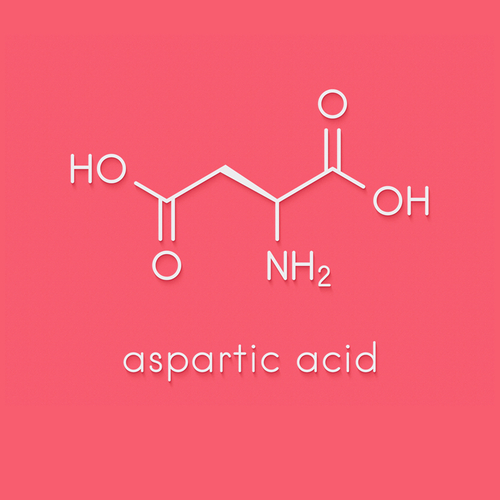
Aspartic acid
Scientific names: 2-Aminobutanedioic acid
Alternate names: Acide Aspartique, Acide L-Aspartique, Asp, Aspartates, Aspartatos, Aspartic Acid, D-Asp, D-Aspartic Acid, L-Asp, L-Aspartate, L-Aspartic Acid, Magnesium Potassium Aspartate, Spartase
Actions: Athletic performance enhancement, Hormonal, Mineral absorption
Background
L-aspartic acid is an amino acid, which are the building blocks of protein. D-aspartic acid is used in other body functions. Aspartate refers to both forms.
L-aspartic acid is a nonessential amino acid, meaning that it is made naturally in the body and doesn't need to be consumed in foods. D-aspartic acid is also made naturally in the body, but it's used in the nervous and reproductive systems rather than to make protein.
People use aspartic acid for athletic performance, fatigue, muscle strength, opioid withdrawal, and many other conditions, but there is no good scientific evidence to support these uses.
Don't confuse aspartic acid with L-ornithine-L-aspartate. These are not the same.
L-aspartic acid is a nonessential amino acid, meaning that it is made naturally in the body and doesn't need to be consumed in foods. D-aspartic acid is also made naturally in the body, but it's used in the nervous and reproductive systems rather than to make protein.
People use aspartic acid for athletic performance, fatigue, muscle strength, opioid withdrawal, and many other conditions, but there is no good scientific evidence to support these uses.
Don't confuse aspartic acid with L-ornithine-L-aspartate. These are not the same.
Safety Safety definitions
When taken by mouth: Aspartic acid is commonly consumed in foods. D-aspartic acid is possibly safe when used in doses of 3-6 grams daily for up to 3 months. L-aspartic acid is possibly safe when used in doses up to 8 grams daily, short-term. There isn't enough reliable information to know what the side effects might be.
Children: Aspartic acid is commonly consumed in foods. But aspartic acid is possibly unsafe when given by mouth to infants. It has been linked to possible brain defects in animal research. Don't give aspartic acid supplements to infants. There isn't enough reliable information to know if aspartic acid supplements are safe in older children and adolescents or what the side effects might be. Stay on the safe side and avoid use.
Special Precautions & Warnings:
Pregnancy and breast-feeding: Aspartic acid is commonly consumed in foods. But it is possibly unsafe when taken by mouth as medicine while pregnant or breast-feeding. Aspartic acid has been linked to possible brain defects in newborns in animal research. Don't use aspartic acid supplements if you are pregnant or breast-feeding.Children: Aspartic acid is commonly consumed in foods. But aspartic acid is possibly unsafe when given by mouth to infants. It has been linked to possible brain defects in animal research. Don't give aspartic acid supplements to infants. There isn't enough reliable information to know if aspartic acid supplements are safe in older children and adolescents or what the side effects might be. Stay on the safe side and avoid use.
Effectiveness
Effective Effectiveness definitions
There is interest in using aspartic acid for a number of purposes, but there isn't enough reliable information to say whether it might be helpful.
Dosing & administration
There isn't enough reliable information to know what an appropriate dose of aspartic acid might be. Keep in mind that natural products are not always necessarily safe and dosages can be important. Be sure to follow relevant directions on product labels and consult a healthcare professional before using.
Interactions with pharmaceuticals
It is not known if Aspartic Acid interacts with any medicines. Before taking Aspartic Acid, talk with your healthcare professional if you take any medications.
Interactions with herbs & supplements
There are no known interactions with herbs and supplements.
Interactions with foods
There are no known interactions with foods.
Products
View all productsPer 35.2 g:
- Potassium citrate 402.65 mg equiv. potassium 145.75 mg
- L-aspartic acid 111 mg
- L-glutamine 2.22 g
- L-leucine 1.68 g
- Lysine hydrochloride 451.03 mg equiv. l-lysine 361 mg
- L-isoleucine 450 mg
- L-valine 450 mg
- L-phenylalanine 200 mg
- L-threonine 200 mg
- Cysteine hydrochloride 45 mg equiv. cysteine 31.04 mg
- L-methionine 120 mg
- L-tyrosine 112.5 mg
- Histidine hydrochloride 185.25 mg equiv. l-histidine 150 mg
- L-proline 111 mg
- L-serine 27.75 mg
- L-alanine 27.75 mg
- Glycine 27.75 mg
- Taurine 11 mg
- Zinc sulphate monohydrate 5.7 mg equiv. zinc 2.08 mg
- Sodium ascorbate (Vitamin C) 22.5 mg equiv. ascorbic acid 20 mg
- d-alpha-Tocopheryl acetate 10 mg equiv. vitamin E 10 IU
- Retinol palmitate (Vitamin A) 421.72 µg equiv. vitamin A 230.21 µg equiv. vitamin A 767 IU
- Cyanocobalamin (Vitamin B12) 2 µg
- Levocarnitine tartrate (L-carnitine) 10.99 mg equiv. levocarnitine 7.5 mg
- Magnesium citrate 166.67 mg equiv. magnesium 27 mg
- Ferrous fumarate 4.6 mg equiv. iron 1.5 mg
- Manganese sulphate monohydrate 10.14 mg equiv. manganese 330 µg
- Selenomethionine 28.59 µg equiv. selenium 11.54 µg
- Copper sulfate pentahydrate 654.7 µg equiv. copper 167 µg
- Molybdenum trioxide 10.56 µg equiv. molybdenum 8 µg
- Chromium picolinate 30.87 μg equiv. chromium 3.84 μg
- Potassium iodide 22 µg equiv. iodine 17 µg
- Borax 2.20 mg equiv. boron 250 µg
- Choline bitartrate 80.89 mg equiv. choline 33.25 mg
- Nicotinamide (Vitamin B3) 3.25 mg
- Pyridoxine hydrochloride (Vitamin B6) 790 µg equiv. pyridoxine 650 µg
- Cholecalciferol 1.65 µg equiv. vitamin D3 66 IU
- Riboflavin (Vitamin B2) 500 µg
- Thiamine nitrate (Vitamin B1) 616.83 µg equiv. thiamine 500 µg
- Folic acid 31.27 µg
- Biotin 50 µg
- Calcium pantothenate (Vitamin B5) 3.53 mg equiv. pantothenic acid 3.25 mg
- Phytomenadione (Vitamin K1) 10 µg
- Glucose monohydrate 12.5 g
- Sunflower lecithin 250 mg
- Magnesium glycerophosphate 50.12 mg equiv. magnesium 6.25 mg
- Calcium glycerophosphate 392.73 mg equiv. calcium 75 mg
- Calcium phosphate 62.62 mg equiv. calcium 25 mg
- Chromic chloride hexahydrate 46.95 μg equiv. chromium 9.16 μg
- Levomefolate glucosamine (Activated folate) 8 μg equiv. levomefolic acid 4.5 μg
- Medium Chain Triglycerides (powder) (MCT) 3 g
Practitioner product
Per 37 g:
- Potassium citrate 402.6 mg equiv. potassium 145.74 mg
- L-aspartic acid 111 mg
- Glutamine 2.22 g
- L-leucine 1.68 g
- Lysine hydrochloride 451.03 mg equiv. lysine 361 mg
- L-isoleucine 450 mg
- L-valine 450 mg
- L-phenylalanine 200 mg
- L-threonine 200 mg
- Cysteine hydrochloride 45 mg equiv. cysteine 31.04 mg
- L-methionine 120 mg
- L-tyrosine 112.5 mg
- Histidine hydrochloride 185.25 mg equiv. l-histidine 150 mg
- L-proline 111 mg
- L-serine 27.75 mg
- Glycine 27.75 mg
- L-alanine 27.75 mg
- Taurine 11 mg
- Levocarnitine tartrate (L-carnitine) 10.99 mg equiv. levocarnitine 7.5 mg
- Magnesium citrate 167.09 mg equiv. magnesium 27 mg
- Magnesium glycerophosphate 49.99 mg equiv. magnesium 6.25 mg
- Calcium phosphate 62.64 mg equiv. calcium 25 mg
- Calcium glycerophosphate 393.27 mg equiv. calcium 75 mg
- Ferrous fumarate 45.6 mg equiv. iron 1.5 mg
- Manganese sulphate monohydrate 1.02 g equiv. manganese 330 µg
- Zinc sulphate monohydrate 5.74 mg equiv. zinc 2.08 mg
- Selenomethionine 28.64 µg equiv. selenium 11.54 µg
- Copper sulfate pentahydrate 656.27 µg equiv. copper 167 µg
- Molybdenum trioxide 12 µg equiv. molybdenum 8 µg
- Chromic chloride hexahydrate 46.95 µg equiv. chromium 9.16 µg
- Chromium picolinate 30.89 µg equiv. chromium 3.84 µg
- Potassium iodide 22.25 µg equiv. iodine 17 µg
- Borax 2.2 mg equiv. boron 250 µg
- Choline bitartrate 80.84 mg equiv. choline 33.25 mg
- Sodium ascorbate (Vitamin C) 22.5 mg equiv. ascorbic acid 20 mg
- dl-alpha-Tocopheryl acetate 10 mg equiv. vitamin E 10 IU
- Nicotinamide (Vitamin B3) 3.25 mg
- Retinol palmitate 418.58 µg equiv. vitamin A 767 IU
- Pyridoxine hydrochloride (Vitamin B6) 790 µg equiv. pyridoxine 650 µg
- Cholecalciferol 1.65 µg equiv. vitamin D3 66 IU
- Riboflavin (Vitamin B2) 500 µg
- Thiamine nitrate (Vitamin B1) 616.83 µg equiv. thiamine 500 µg
- Folic acid 31.27 µg
- Biotin 50 µg
- Calcium pantothenate (Vitamin B5) 3.53 mg equiv. pantothenic acid 3.25 mg
- Phytomenadione (Vitamin K1) 10 µg
- Cyanocobalamin (Vitamin B12) 2 µg
- Glucose monohydrate (Dextrose) 12.5 g
- Sunflower lecithin 250 mg
- Levomefolate glucosamine (Activated folate) 8 µg equiv. levomefolic acid 4.5 µg
- Medium Chain Triglycerides (powder) (MCT) 3 g
Practitioner product
Per sachet (Raspberry):
- Potassium phosphate monobasic 96.52 mg equiv. potassium 28 mg equiv. phosphorus 21.95 mg
- L-aspartic acid 7 mg
- Ascorbic acid (Vitamin C) 1 g
- Retinyl acetate (Vitamin A) 859.75 µg equiv. retinol equivalents 750 µg
- d-alpha-Tocopheryl acetate 21.47 mg equiv. vitamin E 15 IU
- Cyanocobalamin (Vitamin B12) 25 µg
- Zinc ascorbate 5 mg equiv. zinc 785 µg
- Nicotinamide (Vitamin B3) 5 mg
- Pyridoxine hydrochloride (Vitamin B6) 2 mg equiv. pyridoxine 1.6 mg
- Folic acid 40 µg
- Calcium pantothenate (Vitamin B5) 2.5 mg equiv. pantothenic acid 2.29 mg
- Calcium phosphate 34.67 mg equiv. phosphorus 5.5 mg
- Potassium iodide 198.55 µg equiv. iodine 150 µg
- Magnesium carbonate 122.36 mg equiv. magnesium 29.5 mg
- Manganese gluconate 4.55 mg equiv. manganese 500 µg
- Chromium picolinate 96.52 µg equiv. chromium 12 µg
- Cysteine hydrochloride 3.5 mg
- Total Calcium 50 mg
- Quercetin dihydrate 20 mg
12 sachets Raspberry
RRP: $11.36$9.09Save: 20%
Create account
Per 30 g (Passionfruit):
- Potassium citrate
- L-aspartic acid
- Hydrolysed pea protein
- L-alanine
- Glycine
- L-valine
- L-leucine
- L-isoleucine
- L-proline
- L-phenylalanine
- L-tyrosine
- L-serine
- L-threonine
- L-methionine
- L-arginine
- L-histidine
- L-lysine
- L-glutamic acid
- L-tryptophan
- L-cysteine
- Natural flavours
- Cichorium intybus (root) (Chicory)
- Acacia sp. (gum)
- Coconut water powder
- Medium chain triglycerides (MCT)
- Magnesium citrate
- Sodium chloride (Salt)
- Calcium citrate
- Ascorbic acid (Vitamin C)
- Citric acid anhydrous
- Stevia rebaubiana
- Thaumatin
- Beta-carotene
- Riboflavin (Vitamin B2)
$59.95
Create account
Per 35 g (Chocolate Fudge):
- Oryza sativa (Brown rice)
- Vicia faba (Fava bean protein)
- Pumpkin seed protein
- Cannabis sativa (seed)
- L-glutamine
- Acacia sp. (fibre)
- L-glycine
- L-valine
- L-threonine
- L-leucine
- L-arginine
- L-isoleucine
- Theobroma cacao (Cocoa powder) 3.24 g
- Natural flavours
- Malus (powder) (Apple)
- Siraitia grosvenorii (Monk fruit)
- Medium Chain Triglycerides (powder) (MCT)
- Xanthan gum
- Eleutherococcus senticosus
- Coffea canephora
- Camellia sinensis
- Magnesium citrate
- Zinc gluconate
- Ferrous fumarate
- Pink Himalayan crystal salt
- Laminaria digitara (Kelp)
- Ananas comosus (Bromelain)
- Carica papaya (Papain)
- Vitamin D
- Cyanocobalamin (Vitamin B12)
RRP: $44.95$35.06Save: 22%
Create account
$98.75
Create account
Per 30 g (Choc):
$52.95
Create account
Per 4.5 g:
Practitioner product
Per 13 g (Orange):
- Potassium citrate 553 mg equiv. potassium 200 mg
- Magnesium citrate 1.94 g equiv. magnesium 300 mg
- Calcium citrate 1.82 g equiv. calcium 400 mg
- Zinc citrate dihydrate 77.9 mg equiv. zinc 25 mg
- Selenomethionine 78 µg equiv. selenium 31.5 µg
- Taurine 3 g
- Glycine 2 g
- Calcium ascorbate dihydrate (Vitamin C) 1.22 g equiv. ascorbic acid 1 g equiv. calcium 114 mg
- Thiamine hydrochloride (Vitamin B1) 25.4 mg equiv. thiamine 20 mg
- Riboflavin 5-phosphate sodium (Activated B2) 13.2 mg equiv. riboflavin 10 mg
- Nicotinamide (Vitamin B3) 25 mg
- Calcium pantothenate (Vitamin B5) 32.8 mg equiv. pantothenic acid 30 mg equiv. calcium 2.73 mg
- Pyridoxal 5-phosphate monohydrate (P5P) 78.4 mg equiv. pyridoxine 50 mg
- Biotin 500 µg
- Molybdenum trioxide 90 µg equiv. molybdenum 60 µg
- Chromium chloride hexahydrate 507 µg equiv. chromium 100 µg
- Menaquinone 7 (Vitamin K2) 45 µg
Practitioner product
Practitioner product
Per 6.1 g (Vanilla):
- Potassium citrate 415 mg equiv. potassium 150 mg
- Calcium hydrogen phosphate dihydrate 1.4 g equiv. calcium 325 mg equiv. phosphorus 251 mg
- Selenomethionine 250 µg equiv. selenium 100 µg
- Magnesium bisglycinate 1.5 g equiv. magnesium 150 mg
- Zinc bisglycinate (Zinc amino acid chelate) 50 mg equiv. zinc 10 mg
- Silicon dioxide 50 mg
- Manganese amino acid chelate 31 mg equiv. manganese 5 mg
- Borax 8.8 mg equiv. boron 1 mg
- Potassium iodide 196 µg equiv. iodine 150 µg
- Molybdenum trioxide 180 µg equiv. molybdenum 120 µg
- Chromium nicotinate 500 µg equiv. chromium 50 µg
- Iron bisglycinate 50 mg equiv. iron 10 mg
Practitioner product
Per 3.43 g (Berry):
- Potassium chloride 212 mg equiv. potassium 110 mg equiv. chloride 101.95 mg
- Calcium ascorbate (Vitamin C) 279.91 mg equiv. ascorbic acid 226.72 mg equiv. calcium 25.75 mg
- Calcium citrate 117.16 mg equiv. calcium 24.25 mg
- Zinc ascorbate 33.33 mg equiv. zinc 5 mg equiv. ascorbic acid 25 mg
- Potassium chloride 293 mg
- Sodium chloride (Salt) 321.36 mg equiv. sodium 125 mg equiv. chloride 196.35 mg
- Citric acid monohydrate 580 mg
- Glucose monohydrate 800 mg
- Magnesium citrate 340 mg equiv. magnesium 50 mg
- Sodium selenite 25.3 µg equiv. selenium 5 µg
- Chromium picolinate 1 mg equiv. chromium 20 µg
RRP: $36.42$29.14Save: 20%
Create account
Per 7g:
- Potassium citrate 276.57 mg equiv. potassium 100 mg
- Total Magnesium 310 mg
- Magnesium amino acid chelate 1.06 g equiv. magnesium 150 mg
- Magnesium citrate nonahydrate 841.4 mg equiv. magnesium 100 mg
- Magnesium orotate dihydrate 455 mg equiv. magnesium 30 mg
- Magnesium phosphate pentahydrate 145.32 mg equiv. magnesium 30 mg
- Chromium nicotinate 400 μg equiv. chromium 50 μg
- Creatine monohydrate 1 g
- Zinc amino acid chelate 25 mg equiv. zinc 5 mg
- Manganese amino acid chelate 10 mg equiv. manganese 1 mg
- Thiamine hydrochloride (Vitamin B1) 30.2 mg equiv. thiamine 26.9 mg
- Pyridoxal 5-phosphate (P5P) 10.7 mg equiv. pyridoxine 6.8 mg
- Nicotinamide (Vitamin B3) 50.1 mg
- Riboflavin 5-phosphate sodium (Activated B2) 12 mg
- Selenomethionine 63 μg equiv. selenium 25.2 μg
- Taurine 500 mg
- L-glutamine 500 mg
- Calcium pantothenate (Vitamin B5) 164 mg equiv. pantothenic acid 150 mg
- Calcium folinate (Activated folate) 540 μg equiv. folinic acid 500 μg
- Cyanocobalamin (Vitamin B12) 400 μg
- Ascorbic acid (Vitamin C) 200 mg
- Levocarnitine (L-carnitine) 500 mg
Practitioner product
Per 8 g (Orange):
- Potassium citrate 276 mg equiv. potassium 100 mg
- Calcium citrate 2.07 g equiv. calcium 500 mg
- Magnesium citrate 1.85 g equiv. magnesium 300 mg
- Zinc citrate dihydrate 31.1 mg equiv. zinc 10 mg
- Selenomethionine 75.2 µg equiv. selenium 30.4 µg
- Chromic chloride hexahydrate 307.2 µg equiv. chromium 59.2 µg
- Molybdenum trioxide 90.4 µg equiv. molybdenum 60 µg
- Menaquinone 7 (Vitamin K2) 90.4 µg
Practitioner product
Per 12.7 g (Raspberry):
- Potassium citrate 275 mg equiv. potassium 100 mg
- Magnesium bisglycinate 3.5 g equiv. magnesium 350 mg
- Taurine 3 g
- L-glutamine 2 g
- Calcium ascorbate dihydrate (Vitamin C) 605 mg equiv. ascorbic acid 500 mg
- Thiamine hydrochloride (Vitamin B1) 25 mg
- Riboflavin 5-phosphate sodium (Activated B2) 34 mg equiv. riboflavin 25 mg
- Nicotinamide (Vitamin B3) 25 mg
- Calcium pantothenate (Vitamin B5) 25 mg
- Pyridoxal 5-phosphate monohydrate (P5P) 25 mg equiv. pyridoxine 16 mg
- Zinc bisglycinate (Zinc amino acid chelate) 50 mg equiv. zinc 10 mg
- Calcium citrate tetrahydrate 711 mg equiv. calcium 150 mg
482 g Raspberry
Practitioner product
Per 12 g:
- Potassium phosphate dibasic 222.7 mg equiv. potassium 100 mg
- Withania somnifera ext. 150 mg
- Magnesium citrate 1.85 g equiv. magnesium 300 mg
- L-glycine 1.5 g
- L-glutamine 1.5 g
- Taurine 1.5 g
- Ascorbic acid (Vitamin C) 250 mg
- Calcium pantothenate (Vitamin B5) 50 mg equiv. pantothenic acid 45.8 mg
- Pyridoxal 5-phosphate monohydrate (P5P) 78.4 mg equiv. pyridoxine 50 mg
- Zinc citrate dihydrate 46.7 mg equiv. zinc 15 mg
Practitioner product
Per 5 g:
- Potassium aspartate 386.5 mg equiv. potassium 80 mg
- Total Magnesium 400 mg
- Magnesium amino acid chelate 1.7 g equiv. magnesium 343 mg
- Magnesium orotate dihydrate 106 mg equiv. magnesium 7 mg
- Magnesium glycinate dihydrate 427.4 mg equiv. magnesium 50 mg
- Calcium ascorbate dihydrate (Vitamin C) 243.5 mg equiv. ascorbic acid 200 mg equiv. calcium 22.9 mg
- Glutamine 500 mg
- Taurine 1 g
RRP: $74.95$52.47Save: 30%
Create account
Per 6 g (Raspberry):
- Potassium citrate 207 mg equiv. potassium 75 mg
- Acetyl levocarnitine hydrochloride (Acetyl-L-carnitine) 250 mg
- Inositol 500 mg
- Choline bitartrate 350 mg equiv. choline 144 mg
- Pinus radiata ext. 50 mg
- Glycine 2 g
- Taurine 500 mg
- Calcium citrate 415 mg equiv. calcium 100 mg
- Magnesium citrate 842 mg equiv. magnesium 130 mg
- Zinc citrate dihydrate 31 mg equiv. zinc 10 mg
- Molybdenum trioxide 33 μg equiv. molybdenum 22.2 μg
- Selenomethionine 74.4 μg equiv. selenium 30 μg
- Pyridoxal 5-phosphate monohydrate (P5P) 15.7 mg equiv. pyridoxine 10 mg
- Nicotinamide (Vitamin B3) 15 mg
- Menaquinone 7 (Vitamin K2) 34.8 μg
- Hydroxocobalamin (Vitamin B12) 200 μg
- Calcium pantothenate (Vitamin B5) 20 mg equiv. pantothenic acid 18.3 mg
- Cholecalciferol (Vitamin D3) 24.6 μg equiv. vitamin D 1000 IU
- Calcium folinate (Activated folate) 217 μg equiv. folinic acid 200 μg
- Retinol acetate (Vitamin A) 461 μg equiv. vitamin A 400 μgRE equiv. vitamin A 1335 IU
- Riboflavin 5-phosphate sodium (Activated B2) 6.54 mg equiv. riboflavin 4.98 mg
- Lecithin 100 mg equiv. phosphatidylcholine 20 mg
- Punica granatum ext. 8.04 mg
- Vaccinium myrtillus ext. 2.5 mg
- Thiamine hydrochloride (Vitamin B1) 12.7 mg equiv. thiamine 10 mg
Practitioner product
Per 4 g:
- Potassium sulphate 150 mg equiv. potassium 67 mg
- Brassica oleracea var. italica ext. 200 mg
- L-glutamine 750 mg
- Brassica oleracea var. italica ext. 150 mg
- Curcuma longa ext. 85 mg
- Taurine 500 mg
- Cysteine hydrochloride 181 mg equiv. cysteine 125 mg
- L-methionine 125 mg
- L-glycine 500 mg
- Choline bitartrate 250 mg
- Inositol 200 mg
Practitioner product
Per 7 g (Orange):
- Potassium phosphate monobasic 182 mg equiv. potassium 52 mg
- Taurine 600 mg
- L-glutamine 500 mg
- Pyridoxine hydrochloride (Vitamin B6) 50 mg equiv. pyridoxine 41.16 mg
- Co-methylcobalamin (Vitamin B12) 150 μg
- Magnesium bisglycinate 3 g equiv. magnesium 300 mg
- Ascorbic acid (Vitamin C) 300 mg
- Calcium hydrogen phosphate dihydrate 269 mg equiv. calcium 63 mg
- Acetyl levocarnitine hydrochloride (Acetyl-L-carnitine) 118 mg
- Nicotinamide (Vitamin B3) 50 mg
- Riboflavin (Vitamin B2) 1.9 mg
- Chromium nicotinate 250 μg equiv. chromium 25 μg
- Selenomethionine 62.5 μg equiv. selenium 25 μg
- Thiamine hydrochloride (Vitamin B1) 30 mg
420 g Orange
Practitioner product
vital.ly has licensed monographs from TRC Healthcare.
This monograph was last reviewed on 12/04/2024 10:00:00 and last updated on 12/11/2020 03:19:25. Monographs are reviewed and/or updated multiple times per month and at least once per year.
Natural Medicines disclaims any responsibility related to medical consequences of using any medical product. Effort is made to ensure that the information contained in this monograph is accurate at the time it was published. Consumers and medical professionals who consult this monograph are cautioned that any medical or product related decision is the sole responsibility of the consumer and/or the health care professional. A legal License Agreement sets limitations on downloading, storing, or printing content from this Database. No reproduction of this monograph or any content from this Database is permitted without written permission from the publisher. It is unlawful to download, store, or distribute content from this site.

